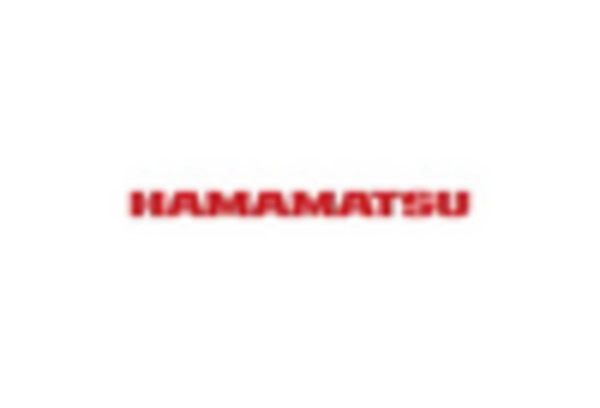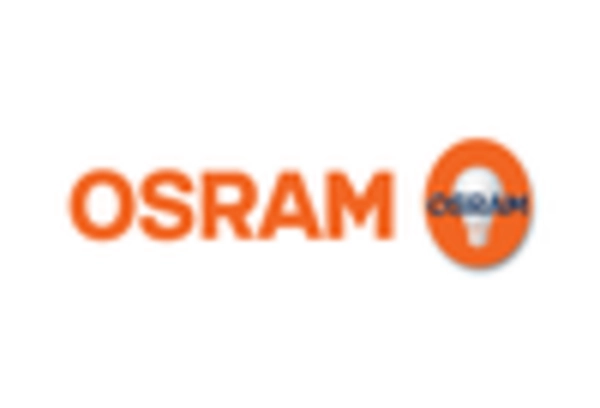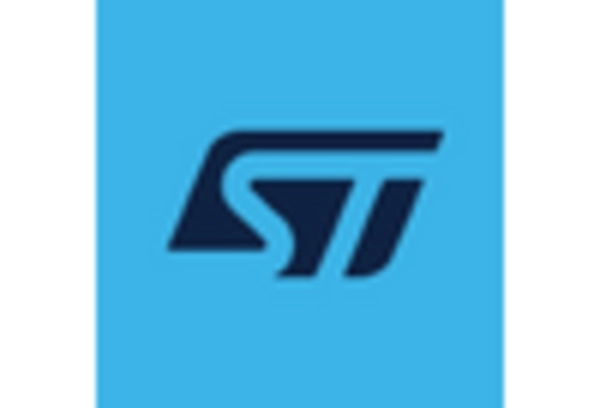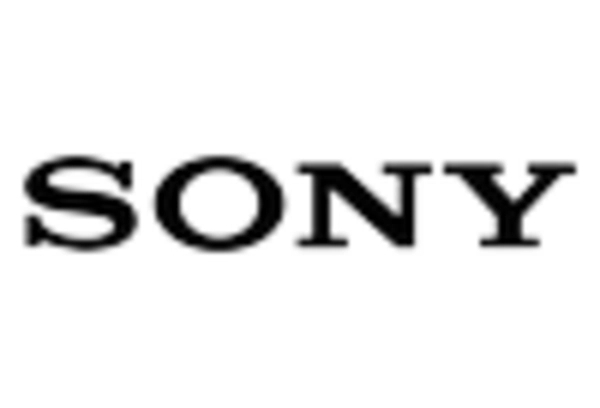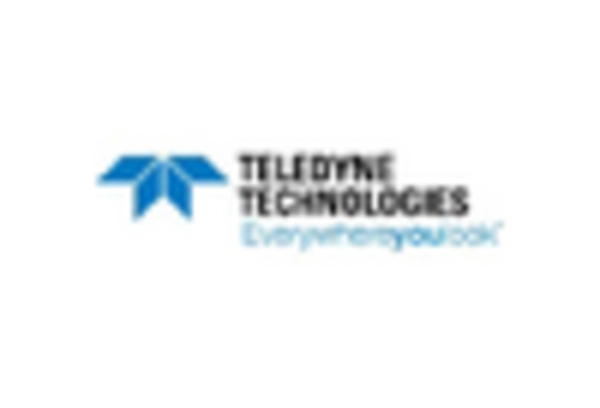Expansion of Smart Technologies
The Photosensitive Semiconductor Device Market is poised for growth due to the expansion of smart technologies across various sectors. The integration of photosensitive devices in smart home applications, automotive systems, and industrial automation is becoming increasingly prevalent. These devices enable enhanced functionality, such as automatic lighting adjustments and improved safety features in vehicles. The market for smart home devices is expected to witness substantial growth, with photosensitive semiconductors being integral to the development of these technologies. As consumers continue to adopt smart solutions, the demand for advanced photosensitive devices is likely to increase, further propelling the Photosensitive Semiconductor Device Market.
Growing Applications in Medical Devices
The Photosensitive Semiconductor Device Market is witnessing growth due to the increasing applications of photosensitive devices in medical technology. These devices are being utilized in various medical instruments, including imaging systems and diagnostic equipment. The demand for advanced medical devices is on the rise, driven by the need for improved patient care and diagnostic accuracy. As healthcare providers seek innovative solutions to enhance their services, the role of photosensitive semiconductors becomes more pronounced. This trend is expected to contribute to the expansion of the Photosensitive Semiconductor Device Market, as manufacturers develop specialized products tailored for medical applications.
Rising Demand for Energy-Efficient Solutions
The Photosensitive Semiconductor Device Market is experiencing a notable surge in demand for energy-efficient solutions. As industries and consumers alike become increasingly aware of the environmental impact of energy consumption, there is a growing inclination towards devices that minimize energy usage. This trend is particularly evident in sectors such as lighting and consumer electronics, where photosensitive semiconductors are utilized to enhance energy efficiency. According to recent data, the market for energy-efficient lighting is projected to grow significantly, with photosensitive devices playing a crucial role in this transformation. The shift towards sustainability is likely to drive innovation and investment in the Photosensitive Semiconductor Device Market, as manufacturers seek to develop products that align with these evolving consumer preferences.
Increasing Investment in Research and Development
The Photosensitive Semiconductor Device Market is benefiting from increasing investment in research and development (R&D) activities. Companies are allocating substantial resources to explore new applications and improve the performance of photosensitive devices. This trend is particularly evident in sectors such as renewable energy and telecommunications, where innovative solutions are in high demand. The focus on R&D is expected to yield breakthroughs that enhance the functionality and efficiency of photosensitive semiconductors. As a result, the Photosensitive Semiconductor Device Market is likely to see a surge in new product offerings, catering to the evolving needs of various industries.
Technological Advancements in Semiconductor Manufacturing
Technological advancements in semiconductor manufacturing are significantly influencing the Photosensitive Semiconductor Device Market. Innovations in fabrication techniques and materials are enabling the production of more efficient and reliable photosensitive devices. For instance, the development of new semiconductor materials, such as organic semiconductors, is enhancing the performance of photosensitive devices. This evolution is expected to lead to a broader range of applications, particularly in sectors like telecommunications and healthcare. As manufacturers invest in research and development to leverage these advancements, the Photosensitive Semiconductor Device Market is likely to experience robust growth, driven by the introduction of cutting-edge products.
